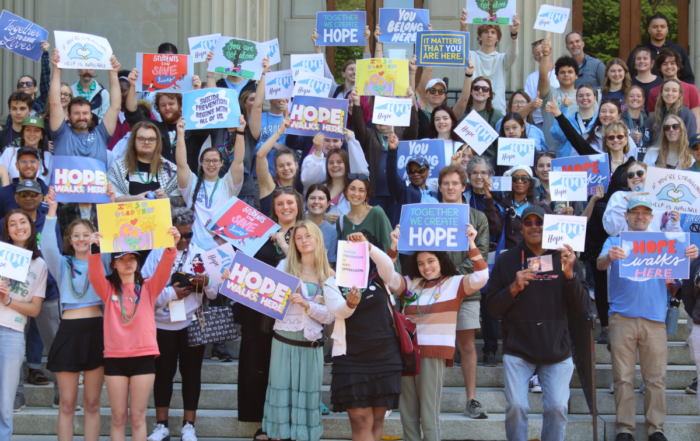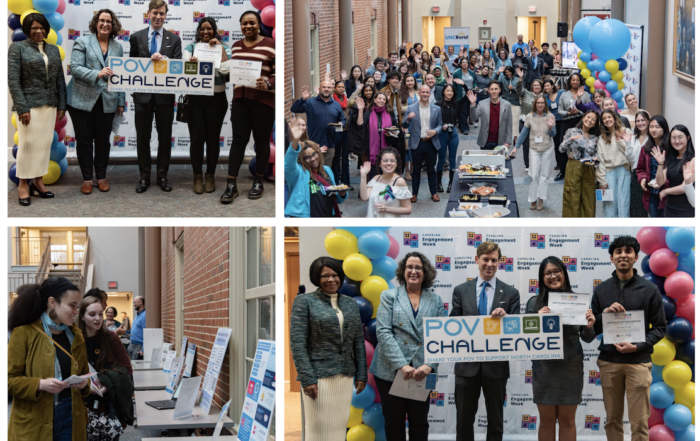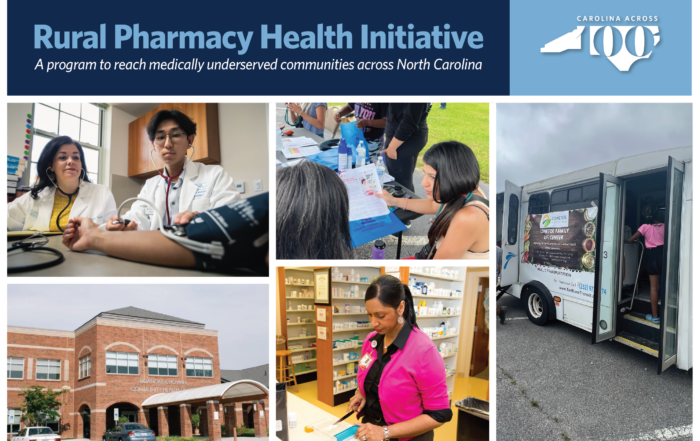Students
Reflections from Emma Parry
ANTH 395 students reflect on their engagement with “Our State, Our Work”
by Emma Parry
September 18, 2023
When I registered for the Carolina Across 100 (CX100) course, I knew I would be paired with a community collaborative through the Our State, Our Work program, providing support to help connect young adults ages 16-24 with living wage jobs. What I didn’t expect was how focused my work would be on digital outreach research, and how difficult this task would be. The more I learned about opportunity youth, the more I realized that the challenges they face also create challenges for how to best reach out and engage with this population.
The community collaborative I was paired with is Communities Connected for Success, led by Men and Women United for Youth and Families. Their mission is to support Bladen and Columbus Counties by collaborating with local governments to provide job training and mentorship to opportunity youth. Communities Connected for Success has multiple programs in place and a wide range of services available. Their challenge is identifying and connecting with the youth who need their help. Quickly, the work with my student partner turned to marketing strategies and digital outreach in particular. With the team’s outreach goals set, we got to work on planning how the organizations could improve this outreach method.
Because our involvement working with CX100 would only last for the semester, one of our goals was to make sure we implemented processes and tasks that could be sustained long after the spring semester ended. Instead of jumping in to take over social media posting, I began creating templates, reusable planning calendars, and instructional documents that can continue to be used to help the Communities Connected for Success team learn and grow their internal communications structure.

In order to find successful ways to make digital connections, I had to put myself in new perspectives related to opportunity youth. I had to figure out what method of contact would be most beneficial for such a hard-to-reach group. First, I channeled a youth perspective, an easy task because of my age. I had to think about where people my age seek out information or places typically visited by youth. I continued researching digital platforms from their perspective, learning as much as I could about the challenges they face and the impacts on their lives, including struggles to meet basic needs such as housing, childcare, and transportation.
A final perspective I needed was a better understanding of my community team, located in a region that was unfamiliar to me. I quickly began to realize how important it would be to consider the demographic trends, rural versus urban life, popular jobs, and cultural values. All of these perspectives became essential for understanding and trying to solve the problem of connecting with opportunity youth.
After this initial research, it became obvious how important social media and proper communication would be for connecting with opportunity youth. My generation has grown up with social media. It is used daily to influence people to buy new products or try new trends. By putting content on youth-focused platforms like Instagram, Twitter, or TikTok, teams could find success in accessing this audience.
But simply existing on these platforms is not enough. Designing engaging and consistent content that meets opportunity youth where they are is the bigger hurdle.
As we continue collaborating to reach more opportunity youth in Columbus and Bladen Counties through the work of Men and Women United and their community partners in the region, the Carolina Across 100 course sought to offer as many ideas and resources as we could to help expand their important work.
Accessing opportunity youth is a challenge essential for North Carolina counties to overcome as they continue offering resources to build the workforce and enhance social and financial well-being for all. Teams are doing innovative work engaging social media to make new connections, and this work will endure well past the end of UNC’s involvement in the program. As teams continue to make lasting changes for youth across the state, stay connected with this statewide initiative to watch their outreach numbers grow and their impact expand.

Emma Parry is a junior at UNC-Chapel Hill, majoring in Political Science with a minor in Health & Society, graduating in 2025. She is originally from Dallas, Texas, but has spent most of her life in Chapel Hill, North Carolina.







